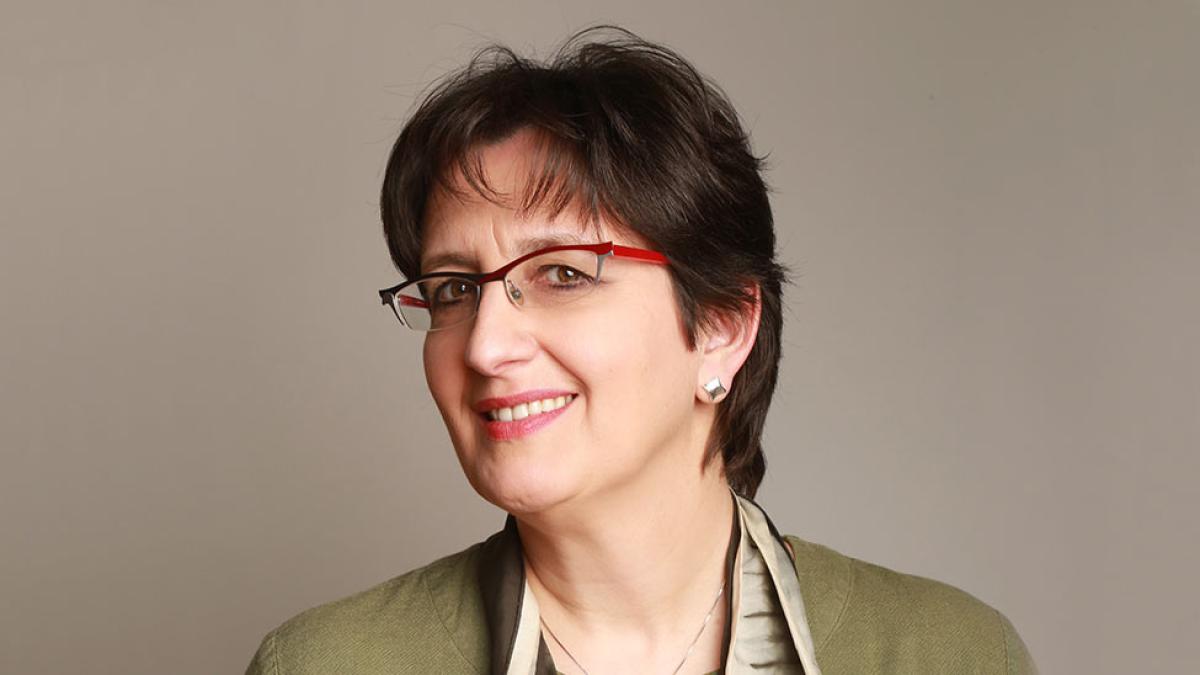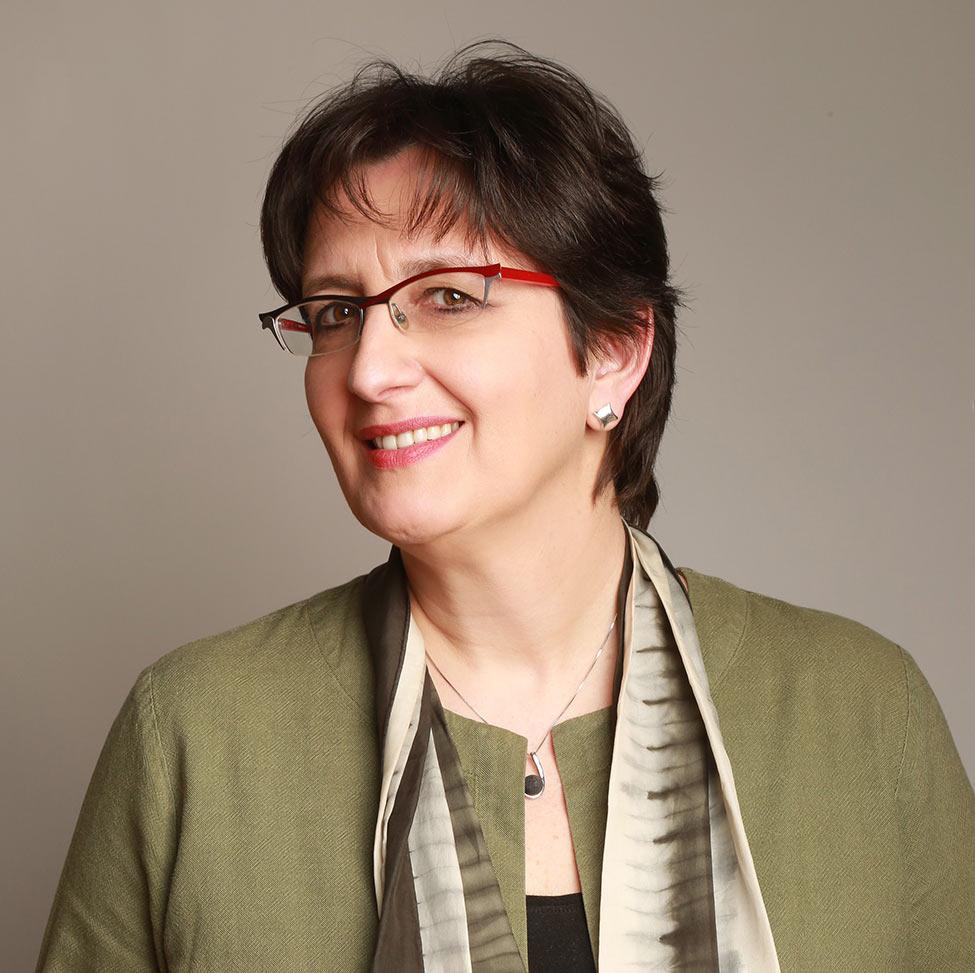
Press Release: Pace University Launches Center for Global Health
Pace University recently announced the launch of the Center for Global Health, an initiative focused on chronic respiratory diseases (CRDs) and other communicable and non-communicable diseases in urban environments through research, advocacy, and education.


New initiative will focus on chronic respiratory diseases in urban environments
Pace University recently announced the launch of the Center for Global Health, an initiative focused on chronic respiratory diseases (CRDs) and other communicable and non-communicable diseases in urban environments through research, advocacy, and education.
CRDs affect more than half a billion people worldwide, contributing to over 3.5 million deaths annually—yet they remain under-recognized in global health discussions. The Center for Global Health will address CRDs by supporting interdisciplinary research, increasing media engagement, and advancing policy advocacy.
Led by José Luis Castro ’88, World Health Organization (WHO) director-general special envoy for chronic respiratory diseases, the center will bring together experts across disciplines to drive meaningful change.
"Chronic respiratory diseases disproportionately impact vulnerable populations, yet they remain largely overlooked in health policy," Castro said. "Through research and advocacy, the Center for Global Health will elevate this issue on the global stage while working with communities to develop sustainable solutions."
The center will also be supported by Sonia Suchday, Ph.D., director of research and graduate education, who will oversee operations and ensure its integration into Pace’s academic and research initiatives.
“This initiative will allow us to address the intersection of health, environment, and social determinants in a meaningful way,” Suchday said. “By fostering interdisciplinary collaboration, we can generate research that leads to actionable solutions for respiratory health challenges in urban settings. The center will also focus on other communicable and non-communicable diseases that are on the rise all over the world.”
With a strong foundation in psychology, biology, environmental sciences, law, health professions, and public health policy, Pace University is uniquely positioned to take a leadership role in addressing this global health challenge. Faculty and students will work together to tackle critical issues affecting communities in New York City and beyond, focusing on conditions such as asthma and chronic obstructive pulmonary disease (COPD) and other chronic conditions.
“The Center for Global Health will provide new opportunities for our students and faculty to contribute to vital research and policy initiatives,” said Jonathan H. Hill, DPS, interim provost and executive vice president for academic affairs of Pace University. “By addressing chronic respiratory diseases and other chronic diseases at both the local and global levels, we are reinforcing Pace’s commitment to innovation and public impact.”
The Center for Global Health aims to transform how CRDs are understood, reported, and addressed, ensuring these conditions receive the attention they deserve. In fact, a key priority is shifting the narrative through increased media coverage and public awareness.
In addition to raising awareness, the center will play a critical role in policy advocacy, offering expert guidance to legislative and parliamentary health committees to help integrate CRDs into national and global health strategies. In collaboration with WHO and other partners, it will provide research-backed solutions to reduce the impact of respiratory diseases on vulnerable populations.
Pace’s deep ties to the New York City community will enable meaningful engagement with local organizations, health care providers, and at-risk populations. The center will also provide hands-on opportunities for students, including research assistantships, internships, and participation in high-level policy discussions, preparing the next generation of public health leaders to tackle some of the most pressing global health challenges of our time.
As Pace University continues to expand its impact, the Center for Global Health represents a significant milestone in the institution’s commitment to research, education, and community engagement.
About Pace University
Since 1906, Pace University has been transforming the lives of its diverse students—academically, professionally, and socioeconomically. With campuses in New York City and Westchester County, Pace offers bachelor, master, and doctoral degree programs to 13,600 students in its College of Health Professions, Dyson College of Arts and Sciences, Elisabeth Haub School of Law, Lubin School of Business, Sands College of Performing Arts, School of Education, and Seidenberg School of Computer Science and Information Systems.
Aissatou Gningue ’23
Aissatou Gningue’23 is an associate in the Financial Operations division at KPMG. She works with major financial institutions managing their anti-money laundering (AML) investigations, as she is part of an ecosystem driven by collaboration, growth, innovation, and results that matter.


Aissatou Gningue’23 is an associate in the Financial Operations division at KPMG. She works with major financial institutions managing their anti-money laundering (AML) investigations, as she is part of an ecosystem driven by collaboration, growth, innovation, and results that matter.
Aissatou is excited to contribute her time and many talents to KPMG. She is no stranger to hard work; her drive and ambition are unparalleled.
At the age of ten, Aissatou moved from Senegal, West Africa to the United States. She excelled in her studies throughout junior high and high school. When she was accepted into Pace University, she was determined to set her sights high and achieve all of her academic and professional goals. Nothing would deter her. When seeking opportunities she didn’t take the word “no” for an answer. She says her “stubbornness” paid off in immeasurable ways. At Pace, Aissatou pursued two bachelor’s degrees and one master’s degree—she graduated from Pace at the age of 22. While at Pace she was often asked, “Are you sure you can do it?” Her response was always, “Of course I can!”
Aissatou’s journey at Pace offered her endless opportunities for growth personally, academically, and professionally. She learned to have the confidence to create opportunities where she couldn’t find any. “Pace’s motto, Opportunitas, extends beyond what has the university has to offer,” she says. “Opportunitas also means to be the change you want to see in the world, to be bold, and to reimagine the impossible.”
As the student speaker during the Lubin School of Business 2023 commencement ceremony, she delivered an inspirational speech and ended it with a Milton Berle quote: “If opportunity doesn’t knock, build a door.”
Aissatou continues to build doors and other pathways to opportunity. As she reflects on her time at Pace, she says: "The career I have built so far at KPMG has been exciting and fulfilling. I attribute my ability to thrive in this fast-paced environment where change happens sporadically to Pace allowing me to flourish and giving me a platform to pursue incredible opportunities. I was given the opportunity to start a club, be part of several executive boards, be an ambassador and mentor to my peers, and most importantly, pursue degrees that have proven to be most valuable. Pace gave me wings to soar and I've been flying ever since!”
Soaring and flying, though synonymous, demonstrate that opportunity serves as the launching pad to building a successful career. Aissatou’s Pace experience gave her the confidence to hit the ground running with skills that will ensure she remains in high demand.
From Wall Street to the Classroom—Shaping Future Business Leaders
Pace alumna and seasoned Wall Street executive Professor Birgit Elchoueri brings 25 years of corporate expertise into her dynamic teaching at the Lubin School of Business. She infuses real-world insights in strategic leadership, ethics, and disruptive technologies into every lesson. Her unique journey from finance to academia inspires future business leaders to excel in today’s evolving landscape.

Faculty Spotlight: Professor Birgit Elchoueri, DPS

We had the opportunity to speak with Professor Birgit Elchoueri, DPS, from the Management and Management Science department at Pace University’s Lubin School of Business about her career in both academia and the corporate world.
A Pace alumna with three degrees from the university, she has been shaping the next generation of business leaders since 2019—first as an adjunct professor and now as a full-time clinical professor. With 25 years of experience as a Wall Street executive and a background in strategic leadership, business ethics, and disruptive technologies, she brings a wealth of real-world insight into her classroom.
Her teaching philosophy emphasizes critical thinking, teamwork, and practical application, preparing students to navigate today’s rapidly evolving business landscape with confidence.
Why Management Science?
Management science connects all business disciplines, offering leaders the tools they need to integrate and align these areas effectively. Teaching management is about preparing students to become effective leaders who can handle the complexities of today’s business world, which is constantly evolving. Management education fosters leadership skills, helping individuals lead teams, make strategic decisions, solve problems effectively, and create positive change.
Why Lubin/Pace?
Pace University is my alma mater, and I earned three degrees at Pace: BA in Language, Culture, and World Trade (Dyson), MBA in Finance and International Business (Lubin), and a DPS in Management (Lubin).
I received a rigorous and transformative education at Pace University, which not only shaped my professional journey but also instilled in me a strong sense of connection. This bond with Pace inspired me to return as a professor, eager to contribute to the institution that played such a pivotal role in my professional growth.
What are your research interests/areas?
My research interests encompass innovation and disruptive technologies, the behavioral aspects of strategic decision-making—particularly understanding why managers and business leaders make certain choices—and the crucial role of business ethics in a rapidly evolving business landscape influenced by AI and other technological trends.
Why is it important to advance research in this area or these areas?
Disruptive technologies are transforming industries at an unprecedented speed. Business ethics research is especially critical in an era where technologies present boundless opportunities to propel business growth, yet simultaneously pose the risk of unintended consequences that can have far-reaching and profound effects on societal well-being.
Ethical considerations in business are more important than ever, as organizations face increasing pressure from their stakeholders—including consumers, employees, investors, and governments—to operate responsibly. Research into business ethics, particularly in the context of new technologies, helps create frameworks for sustainable, transparent, and socially responsible practices.
What do students learn in your classroom?
I strive to create a classroom atmosphere of intellectual stimulation, empathy, and trust, and I believe that learning is a joint effort between the educator and the student. My teaching method involves engaging students in active discussions that focus on analyzing strategic and ethical dilemmas that corporations face when responding to conflicting stakeholder needs and demands.
My goal as an educator is to teach my students how to become effective leaders and strategic problem solvers. I am a strong believer in the power of teamwork—both in the workplace and in the classroom. Team assignments and hands-on design thinking exercises focused on urgent real-world issues provide students with the opportunity to develop teamwork and leadership skills, as well as a sense of responsibility, as they practice different roles within their teams.
Discuss your professional path and its impact on how you teach and what you teach.
I began my corporate career as a business analyst at the New York branch of a major European bank, where I underwent rotational training in areas such as controlling, operations, corporate finance, and the trading floor. Later, I advanced to senior management positions, including director of the Global Markets division at several prominent Wall Street financial services firms, where I led quantitative teams and business analysts.
Over the past 15 years, I served as chief of staff to the CEO and as a member of the board of directors for the North American Corporate Insurance division of Allianz SE. In this capacity, I was entrusted with overseeing the CEO/board member office, spearheading the marketing and communications function, and managing the firm’s administration team. I ensured that critical path projects—including new product launches, portfolio run-offs, business process reengineering projects, organizational redesign initiatives, and cultural and technological transformations—were planned and executed effectively throughout the organization.
I connect my 25 years of professional experience as a manager and corporate executive on Wall Street with classroom teaching activities, and I encourage my students to learn with a growth mindset. When my students analyze real-world business challenges, they learn how to effectively deliver their ideas and innovative solutions and how to work collaboratively with other team members. In my teaching, I bridge management theory with real-world applications, drawing on my extensive corporate experience to bring practical examples into the classroom and make concepts more relatable and impactful for my students.
What are some challenges you had to overcome to get to where you are today?
The challenges I’ve navigated to reach where I am today have been both numerous and demanding. These included balancing family life with an intense work week of up to 80 hours, often accompanied by frequent business travel—all while executing strategic decisions, leading diverse teams, and pursuing advanced academic degrees.
Maintaining excellent grades to secure scholarships added another layer of pressure, yet these experiences not only tested my limits, but also sharpened my time management skills, resilience, and unwavering determination to excel in both my personal and professional life.
Which triumph are you most proud of?
In my role as an executive coach, I take great pride in mentoring employees I’ve hired at the early stages of their careers who go on to become successful executives. I’m also deeply fulfilled when C-suite executives I advise and coach achieve success through the strategies we’ve developed together.
What is the single most important lesson you’d like to impart to your students?
Embrace lifelong learning as your guiding principle. Approach knowledge with the curiosity of a sponge, absorbing insights from academic sources, internships, and real-world corporate experiences. Equally important is cultivating strong networks and relationships that support and enrich your journey.
What does #LubinLife mean to you?
#LubinLife strikes a perfect balance between academic excellence and practical implementation, nurturing an environment where critical thinking translates into tangible results in real-world settings.
Classes you have taught or are currently teaching:
BUS 101 (only in the past)
Currently MBA 618, MGT 490, MGT 150, DPS 805